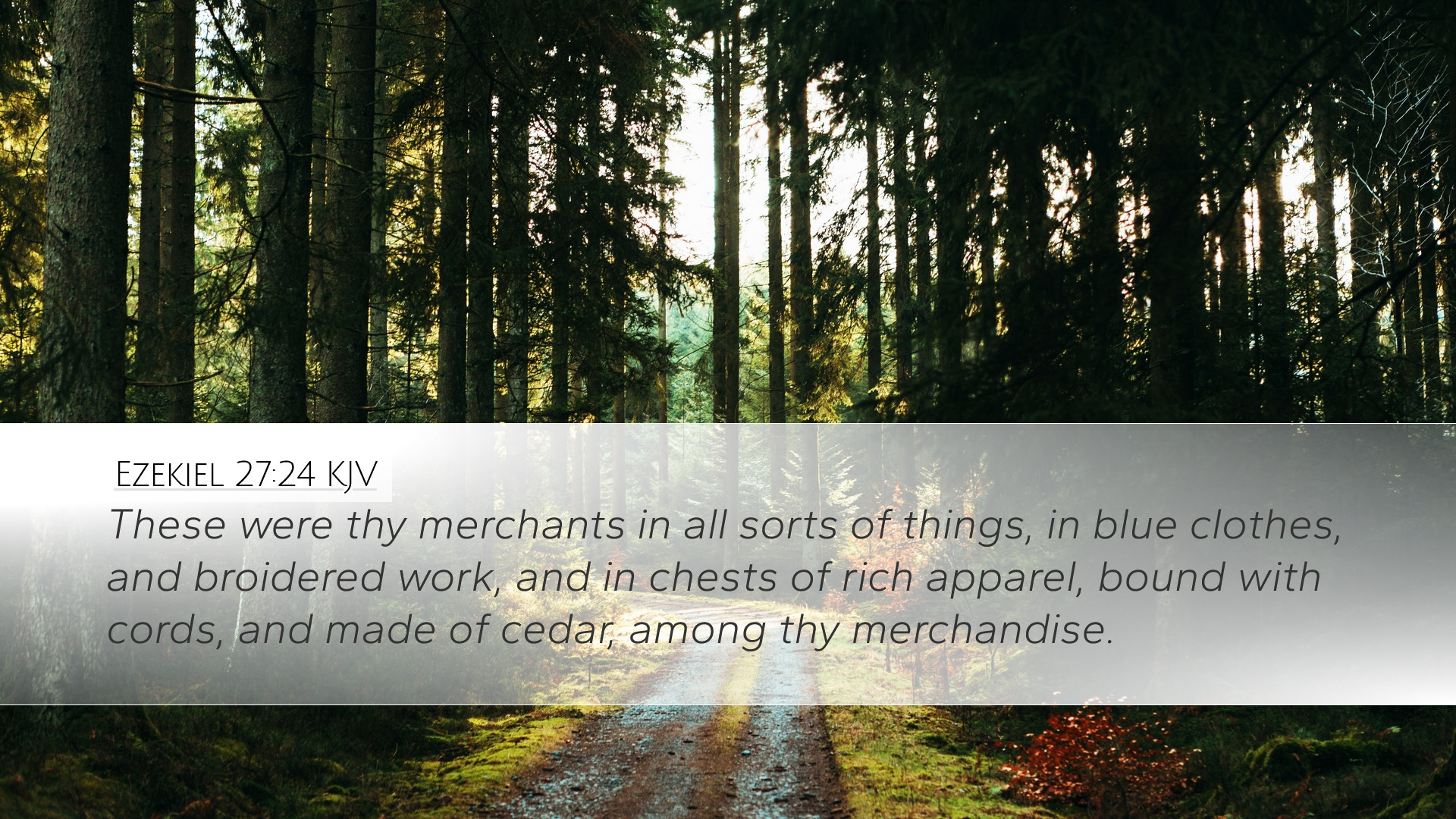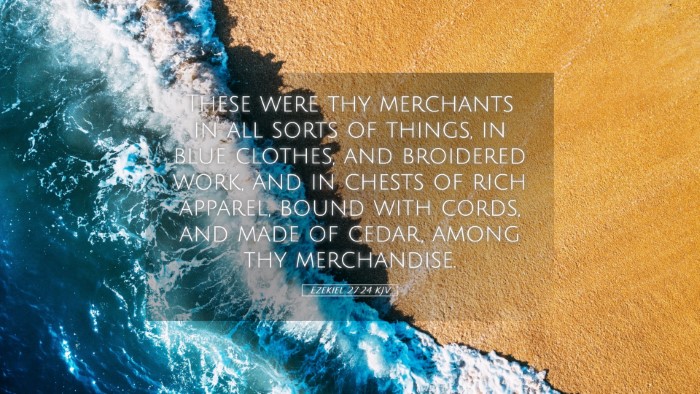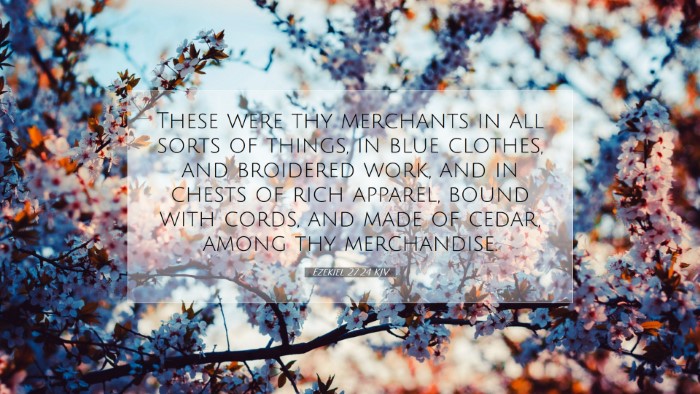Ezekiel 27:24 Commentary
Ezekiel 27:24 states: “These were thy merchants in all sorts of things, in blue clothes, and broidered work, and in chests of rich apparel, bound with cords and made of cedar among thy merchandise.” This verse is part of a larger poetic lamentation regarding the fall of Tyre, a city known for its wealth and extensive trade networks. Throughout the verse, the intricate details serve to highlight the opulence and commercial prowess of Tyre at the height of its splendor.
Significance of Tyre's Trade
In studying this verse, we observe critical insights regarding the nature and significance of trade in the ancient world, particularly in the context of Tyre:
- Merchant Class: Tyre’s merchants played a vital role in the economy, engaging in various forms of trade—which encompassed clothing, finery, and luxury goods.
- Diversity of Goods: The mention of “blue clothes” and “broidered work” signifies a rich variety in textiles, alluding to Tyre's reputation as a center for high-quality production, particularly in dyed fabrics.
- Symbol of Wealth: The description of “chests of rich apparel” and materials used (like cedar) reflects not only the wealth of the nation but also its connections to distant lands and cultures.
Historical Context
Commentaries from Matthew Henry and Albert Barnes emphasize the historical significance of Tyre as a commercial power:
- Geopolitical Relevance: Tyre was strategically located along major trade routes, making it a hub for commerce connecting various civilizations.
- Strategies of Trade: The extensive network that Tyre established reflected advanced trade strategies and relations, elevating its status among other nations.
Theological Implications
Theologically, Ezekiel 27:24 provides rich material for reflection, especially regarding the following themes:
- God's Sovereignty: The downfall of Tyre serves as a reminder of God's ultimate authority over nations and their economic systems.
- Judgment and Pride: Tyre's pride in its wealth and prosperity led to its eventual judgment, warning against the sin of valuing material goods over spiritual integrity.
Insights from Albert Barnes
Barnes adds depth by addressing the societal implications of Tyre’s trade, suggesting that the merchants were deeply intertwined with the fate of their city. This reflects a broader biblical principle where communities and their leaders are responsible for their moral and ethical standings. The downfalls of powerful cities serve as admonitions in Scripture for the consequences of turning away from God.
Analytical Reflections by Adam Clarke
Adam Clarke examines the specific terms used in the verse, noting that the emphasis on luxury indicates the abundance of resources Tyre enjoyed. He points out that the mention of “cords” suggests not only the tying of garments but also symbolizes the binding nature of trade relationships. The association of precious materials with idolatrous practices also serves as a theme in his exposition.
Conclusion
In summary, Ezekiel 27:24 encapsulates the essence of Tyre's economic might while also serving as a cautionary tale regarding pride and the transient nature of material wealth. For pastors, students, theologians, and Bible scholars, this verse not only provides a glimpse into the historical realities of ancient commerce but also conveys enduring truths about God's judgment on hubris and the importance of maintaining a spiritual perspective amidst worldly success.


